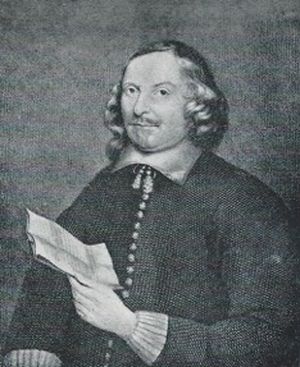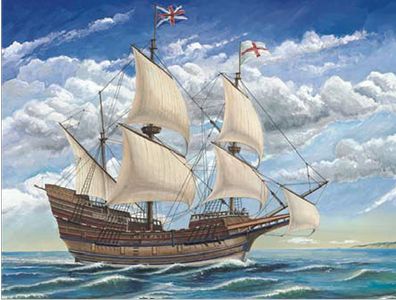The Clapham Society Local History Series — 33
Clapham and the Mayflower
by Timothy Walker
This article first appeared in the South London Press on 4 November 2017
(Entitled: ‘Remembering the businessmen of The Mayflower’)

Many of the merchants who moved to Clapham in the early 1630s had strong connections to North America and two of them, John Beauchamp and James Sherley were two of the original financiers of the Mayflower (Sherley being one of the two Treasurers). In 1626, they were two of the four who took over the financing of the settlers in return for a six-year monopoly of the fur trade with the Native Americans and the responsibility for procuring the goods that the Settlers still needed from England. Such a task went well with their other trading activities. The fur trade provided the pelts necessary for beaver hats, an important fashion item of the early seventeenth century and one that gave ample opportunity for considerable profit.
Beauchamp had become one of the largest importers of consumer goods from the Netherlands, often working with James Sherley, who was a Goldsmith, a trade that often acted as a banker. Both Beauchamp and, particularly, Sherley get a rather bad press from the historians of the Mayflower. They may well have been involved principally because they saw a business opportunity, rather than for any specific religious or political reason, but Sherley did share the Pilgrims’ religious beliefs, and his letters are full of language to support this. For example, in December 1627 he wrote to William Bradford, governor of the Plymouth Colony:
Assuredly, unless the Lord be merciful to us and the whole land in general, our estate and condition is far worse than yours. Wherefore if the Lord should send persecution or trouble here (which is much to be feared) and so should pit into our minds to fly for refuge, I know no place safer than to come to you, for all Europe is at variance one with another, but chiefly with us.
A desire to do business did not always go down well with the Settlers, who might have wanted to break up with Sherley and his associates, but were constrained by debt to them and the constant need for clothing, trading goods and other supplies from home. There were innumerable disagreements between those financing the exercise, who sometimes thought the Settlers were not doing enough to return goods for sale, and the Settlers, who thought the financiers were engaged in sharp practice, including sending goods for which they had not asked. Beauchamp also fell out with Sherley, whom he accused of not giving him a sufficient share of the income (or information) about incoming goods, and ended up taking Sherley to the Chancery Court. (Beauchamp lost, and left Clapham shortly afterwards.). Clapham was not just a country retreat for Sherley. He paid his taxes there, and three of his children were baptised in Clapham, the earliest in 1635. He was certainly there during the serious outbreak of plague in London in 1636, when he wrote to the New Plymouth Colony:
You will and may expect I should write more and answer your letters, but I am not a day in the week at home in town, but carry all my books to Clapham. For here is the miserablest time that I think hath been known in many ages. I have known three great sicknesses, but none like this. And that which should be a means to pacify the Lord and help us, that is taken away, preaching put down in many places, not a sermon in Westminster on the Sabbath, nor in many towns about us; the Lord in mercy look upon us!

His links with Sherley brought Edward Winslow to Clapham. He had crossed on the Mayflower and was governor of New Plymouth three times as well as one of Sherley’s correspondents on various subjects relating to the Mayflower. Winslow returned to England on a number of occasions, and for the last time in 1646. He was in Clapham around 1649 and, despite Sherley’s bad reputation over his business with the Pilgrims, it is clear that Winslow regarded him as a friend. He would hardly have chosen to stay in Clapham if he really disliked Sherley, and his will appoints the latter as one of his ‘four friends’ (the rector, John Arthur, was another) to oversee the disposal of his personal estate in England – again indicating that he trusted Sherley. Winslow was also one of the two witnesses at Sherley’s second marriage, which took place in Clapham in 1654. Finally, Winslow’s daughter Elizabeth was married in Clapham a year after his death, with Sherley one of the witnesses. Winslow also had close connections with a number of other Clapham residents, so it is hardly surprising that he lived there for a time as well, reinforcing the many connections of Clapham to the Settlers in Massachusetts.